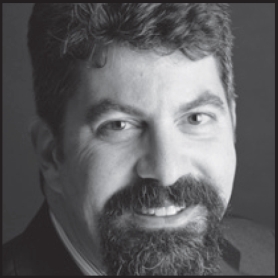Mention "professionalism" in a group of lawyers and the first reaction is likely to be a big yawn. Yet with both the August 2014 CBA Legal Futures report and the Fall 2014 LSUC report on alternative business structures recommending fundamental changes to the way lawyers can do business in Canada, and whether they can partner with non-lawyers or investors to do it, the question of whether the law is a profession or a business is once again front and centre. Is it all just existential angst, or what exactly does it mean to be a “professional”? Do lawyers have any particular monopoly on the term? And how can notions of “professionalism” be reconciled with what is clearly a business imperative?
These sorts of debates aren't new, even though they are taking on new urgency. The Carnegie Foundation's seminal 2007 report, Educating Lawyers, noted that professions “operate within an explicit contract with society as a whole. In exchange for privileges such as monopoly on the ability to practice in specific fields, professions agree to provide certain important social services. In exchange for the privilege of setting standards for admission and authorizing practice, professions are legally obliged to discipline their own ranks for the public welfare. … Professions are guardians of practices vital to society's well-being, in which all citizens have a stake. This responsibility and orientation toward the public good set off professionals as members of a distinct type of occupation, one pledged directly to ideals of service to their clients and to the public as a whole.”
Highfalutin' stuff, but important. Differentiating a profession from a business still seems to matter, and being branded as a “profession” still has value. I'll admit that seeing ads exhorting me to trust my “real estate professional” grate — all those years in law school, articling, and the commitment to getting the licence ought to count for something, right? Financial planners are another group who have been taking steps towards recognition as a “profession,” with codes of conduct, standards of “professional responsibility” and an increasing emphasis on serving the public interest. We're okay with doctors, engineers, architects, nurses, but start stretching the boundaries and we get more than a little uncomfortable. Is your Starbucks barista a “professional”?
The notion of service to the public good is still key. The privilege of determining who gets in, and disciplining those who fall outside the standards, are granted in exchange for a commitment to uphold the public trust. But does that mean a responsibility to serve the greater good equates with sacrificing financial self-interest? This is where lessons from elsewhere remain instructive: accountants in the United States lost the right to self-regulate after Enron because of the perception of self-dealing that couldn't be reconciled with upholding the public trust. High-profile scandals over lawyer disciplinary cases in Australia and England – where the legal profession was seen to give lawyers a cursory slap on the wrist – led governments in both countries to conclude that the legal profession hadn't done enough. They effectively ended lawyers' rights to self-regulate in favour of “co-regulation,” something seemingly contrary to the idea of what it means to be a professional in the first place. When it came to priorities, money had to take second place.
And this is where the ABS debate, much like the multidisciplinary practice debate of the late 1990s, gets tricky. If “core values” rhetoric doesn't simply function to prevent competition and protect turf, legitimate concerns about duties of loyalty and confidentiality, avoiding conflicts of interest, and putting client interests ahead of your own have to be prioritized. And they can be, though it's not easy and will require some intensive soul-searching on the part of the legal profession. What gets considered “core” is also changing as the legal profession becomes increasingly international and increasingly diffuse, which complicates things even further.
Yet regulatory changes elsewhere permitting ABS haven't meant the end of lawyers as “professionals.” Embracing new forms of business structures through which legal services are and can be delivered can be a way to permit firms both large and small to innovate, to respond to increasing threats from unregulated non-legal providers, and to enhance access to justice for consumers.
We'll see how this plays out as the CBA votes in February, the LSUC votes in the spring, and other provincial regulators take a serious look at what is fairly fundamental change to the way we operate. The world is waiting — are we ready?
Paul Paton is the Wilbur Fee Bowker Professor and Dean of Law at the University of Alberta. He can be reached at [email protected].





